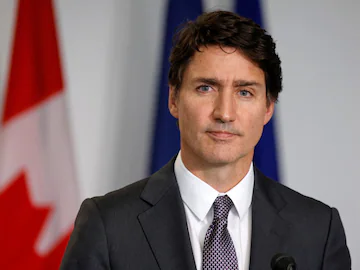
On Thursday, Canadian Prime Minister Justin Trudeau announced that his government plans to significantly reduce the number of new immigrants allowed into Canada, acknowledging that they did not effectively balance immigration with population growth and labor needs in the aftermath of the pandemic.
We’re going to significantly reduce the number of immigrants coming to Canada for the next two years. This is temporary — to pause our population growth and let our economy catch up.
We have to get the system working right for all Canadians.
— Justin Trudeau (@JustinTrudeau) October 24, 2024
Originally aiming to admit 500,000 new permanent residents each year for the next two years, Trudeau revised the target to 395,000 for next year, with further reductions to 380,000 in 2026 and 365,000 in 2027.
Trudeau emphasized the importance of controlled and sustainable immigration for Canada’s future. Facing increasing criticism from within his party and the public regarding his immigration policies and the strain on housing affordability, he stated that stabilizing population growth is necessary for governments to improve healthcare, housing, and social services.
Immigration Minister Marc Miller supported the new lower targets, suggesting they would help alleviate the housing shortage and acknowledging a shift in public sentiment towards immigration. He assured that the government remains committed to maintaining a welcoming stance while adjusting policies to reflect current pressures facing Canadians.
Opposition leader Pierre Poilievre accused Trudeau of failing the national consensus on immigration, claiming his government’s actions have undermined the immigration system and called into question Trudeau’s ability to address housing and other pressing issues. Poilievre also referenced internal calls for Trudeau not to seek a fourth term, which presents a significant challenge for him.
Nelson Wiseman, a political science professor at the University of Toronto, criticized Trudeau’s government for mismanaging immigration despite the rationale of using it to boost the economy and counter an aging population. He pointed out the lack of cooperation between federal and provincial governments in dealing with the resulting pressures on housing, healthcare, and education. Wiseman noted that while some Canadians have always been somewhat xenophobic, there’s been a noticeable shift against the rising number of immigrants and temporary residents due to these growing challenges.
